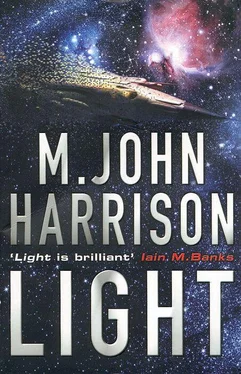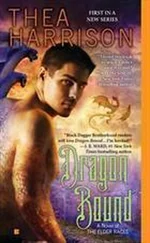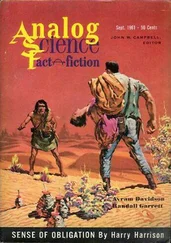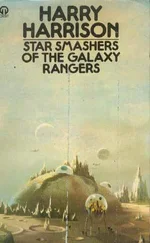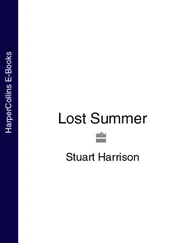'You bloody written thing. 'she said.
He shook his head. He thought perhaps she wanted money.
'No,' he said, 'I-'
A taxi roared into the Charing Cross forecourt and pulled up next to him with a squeal of brakes. Dazzled briefly by the sunlight dancing in the raindrops on its bonnet, he seemed to lose sight of her. In a trice, she had reached in close and tucked the paper deftly into one of his jacket pockets. When he looked up, she was gone. On the paper he found not a letter but an address in Cambridge, written in blue ink as old as himself. He brought it close to his face. Reading it seemed to exhaust him. When the folds gave way, and it fell into lace in his hands, he redirected the taxi, caught another train and went home. There, depressed, worn out, unable to convince himself of the need to unpack his bag, he realised that he had memorised the address without wanting to. He tried to work. He sat dealing cards until it got dark, then-perhaps in a bid to remind himself of the triviality of all this-prowled from bar to bar, drinking restlessly, hoping to meet Inge Neumann and have her tell him with a laugh:
'It's just a bit of fun.'
Next afternoon he stood in the rain where the paper had led him, across the street from a substantial old suburban house, detached, three or four storeys high, in gardens half-hidden behind a wall of attractively spalled red brick.
He had no idea why he had come.
He stood there until his clothes were soaked, but made no move to leave. Children ran up and down the street. At half past four there was a brief increase in traffic. As the rain cleared and the afternoon light shifted west, the brickwork took on a warm orange colour, and the garden wall seemed to recede a little, as if the street had widened; at the same time it seemed to stretch, becoming taller and longer. A little later, the woman in the wool coat waddled into view, breathing heavily and wiping her face. She crossed the road and, walking straight through the wall, disappeared.
'Wait!' gasped Kearney, and flung himself after her.
He had the sense of penetrating something membranous which clung elastically to his face. Then he heard a voice say: 'It was amazing to them to discover they had always been in the garden without understanding it', and knew for certain that the inside and the outside of everything are always a single, continuous medium. In that moment he believed he could go anywhere. With a shout of elation he attempted to fall forward in all possible directions at once; only to find to his dismay that in the very exercise of this privilege he had selected one of them.
Odd items of furniture remained in the house, as if some tenant hadn't quite abandoned it. It was cold in there. Kearney went from room to room, stopping to examine an old-fashioned brass fender, a wooden ironing board folded up like an insect in a corner. He thought he heard people whispering in the rooms above; a laugh cut off by a sudden intake of breath.
The Shrander was waiting for him in the master bedroom. He could see her clearly through the open door, standing at the bay window. Light poured round her thickened, monolithic silhouette, transfiguring the bare floor of the room, then spilled out on to the landing at Kearney's feet, illuminating the rolls of dust beneath the cream-painted skirting board. Arranged on an inlaid table just inside the door he could see: books of matches; condoms in squares of foil; fans of Polaroid snapshots; a pair of oversized dice with symbols he didn't recognise.
'You can come in,' the Shrander said. 'You can step right in.'
'Why have you brought me here?'
At this a white bird flew past the three panes of the bay window, and the Shrander turned to face him.
Her head was no longer human. (Why had he ever thought it was? Why had anyone in the taxi queue thought it was?) It was the skull of a horse. Not a horse's head, but a horse's skull, an enormous curved bone beak whose two halves meet only at the tip, and which looks nothing like a horse at all. A wicked, intelligent, purposeless thing which cannot speak. It was the colour of tobacco. There was no neck. A few shreds of coloured rag-perhaps they had once been ribbons, red, white and blue, studded with coins and medallions-hung where the neck might have been, forming a kind of mantle. This object tilted itself intelligently, looking up and sideways at Michael Kearney like a bird. Breath could be heard inside it. The body beneath, wrapped in its maroon woollen coat, stained and smelly with food, raised its pudgy arms in a proprietary yet generous gesture.
'Look,' ordered the Shrander, in her clear, childish, counter-tenor voice: 'Look out here!'
When he did, everything lurched and there was nothing but blackness and a sense of enormous speed, a few dim points of light. After a moment, a chaotic attractor generated itself, churning and boiling in the cheap iridescent colours of 1980s computer art. Christ's blood, Kearney thought, streaming in the firmament. He staggered, nauseated and vertiginous, and put out a hand to save himself: but he was already falling. Where was he? He had no idea.
'Real things are happening here,' the Shrander said. 'Do you believe me?' In the absence of a reply she added:
'You could have all this.'
She shrugged, as if the offer was less attractive than she might have wished. 'All of it, if you wanted. You people.' She thought for a moment. The trick, of course, is to find your way around. I wonder,' she said, 'if you know how close you are to that?'
Kearney stared wildly out of the window.
'What?' he said. He hadn't heard a word.
The fractals churned. He ran out of the room. On the way, he stumbled into the little inlaid table and, grasping hold of it to keep his balance, found he had picked up the Shrander's dice. At that, his own panic filled the room, a liquid so thick he was forced to turn and swim his way through the door. His arms worked in a sort of breaststroke while his legs ran beneath him in useless slow motion. He stumbled across the landing outside and straight down the stairs- full of terror and ecstasy, the dice in his hand-
They were in his hand again now as he struggled through the marram grass, high on the dunes of Monster Beach. If he looked back, he could see the cottage, a milky illumination coming and going at its windows. The sky was black, and full of bright stars; while the ocean, clasped in the arms of the bay, appeared silver, and fell upon the beach with a faint shushing noise. Kearney, who was not a natural athlete, made perhaps a mile before the Shrander caught him. This time it was much larger than him, though its voice still had the counter-tenor quality that made it sound like a boy or a nun.
'Didn't you know me?' it whispered, looming above him so that the stars were obscured. It smelled of stale bread and wet wool. 'I spoke to you often enough in your dreams. Now you can be the child you were.'
Kearney fell to his knees and pushed his face into the beach, where he perceived with clarity and suddenness not just the individual grains of wet sand but the shapes between them. They looked so distinct and detailed that he did, briefly, feel like a child again. He wept for the sheer loss of this: the loss of himself. I've had no life, he thought. And what did I give it up for? This. He had killed dozens of people. He had joined with a madman to do terrible things. He had never had children. He had never understood Anna. Groaning as much with self-pity as with the effort of not facing his nemesis, his face thrust firmly into the sand, his left arm held rigidly out behind him, he offered it the bag containing the stolen dice.
'Why me? Why me?'
The Shrander seemed puzzled.
'There was something I liked about you,' it explained, 'from the very beginning.'
Читать дальше
